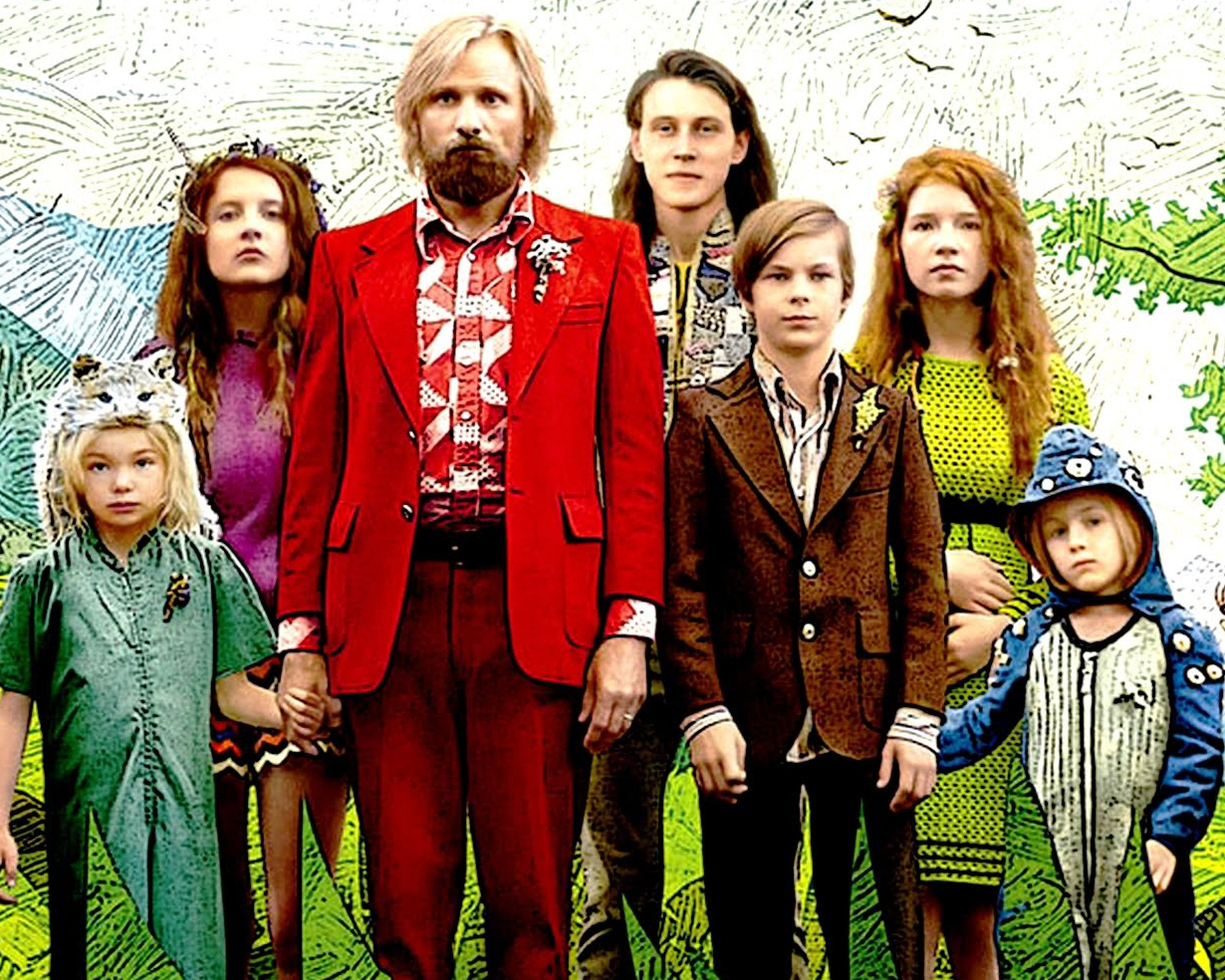Captain Fantastic, one of the year’s best movies, is also one of its most affecting. Written and directed by Matt Ross, Viggo Mortensen stars as the patriarch of a counterculture family living “off the grid” in the Pacific Northwest. In telling a story about their isolated family dynamic amidst tall pine trees, rushing rivers and craggy cliffs, and their subsequent entrance into the “real” world, the movie focuses a very keen eye on the dynamics of nontraditional parenting and poses salient questions about the implications of parental ideologies on development. The picture is a virtuoso opportunity for offbeat Mortensen to dig into a richly conceived character, something he doesn’t always get to do, and he gives the best performance of his career.
Inspired by Ross’ person recollections of growing up in Pacific Northwest communes, Captain Fantastic immediately establishes its milieu from the striking opening scene where a deer is stalked and killed for food by Ben Cash (Mortensen) and his six adolescent children.
The family lives in a teepee surrounded deep in the Pacific Northwest forest, a sort of isolationist utopia where dad Ben keeps them on a regimented acumen that includes survivalist skills, martial arts, hunting and other outdoor endeavors. But they aren’t feral, not by a long stretch—they are well schooled, particularly in classic literature, political philosophy (the family worships Noam Chomsky) and are sharp critical thinkers who’ve been taught to “stick it to the man” and interpret Nabokov’s Lolita while receiving hunting knives as rites of passage.
They are also deeply bonded, and play music together each night by the fire, sympatico in their idyllic environment until their world is shattered by the suicide of their long-suffering, hospitalized, bi-polar mother.
Problems arise when her wealthy, resentful father (Frank Langella) forbids them to attend the funeral, after which the picture becomes a road trip to its New Mexico location. This includes a stop at Ben’s sister’s (Kathryn Hahn) home, where stark contrasts are drawn between the families and children, mostly related to technological influence and levels of academic literacy, which Ben has no problem embarrassingly pointing out. So rigid in his socialist ideologies and against the big business, capitalist drivers of American culture, he resists his sister’s urgent pleas to consider the safety of his children.
Eventually the clan arrives to disrupt the funeral, and Mortensen gets a terrific monologue to the congregation dispelling the entire ceremony as an unwanted sham, setting up a custody struggle for the hearts and minds of the children.
Indeed, the movie presents the children in a world of risk, leading to a broken arm for one child in a cliffside rappelling accident and for another, a fractured vertebrate from a fall. Complicating matters, the eldest son, played by terrific, rising British actor George MacKay, has secretly applied to and been accepted into a number of Ivy League universities.
What works so well in Captain Fantastic is Viggo Mortensen’s rich performance as a father whose rigid ideologies are called into question, and as the film’s plot forces him into self-reflection about his methods, the actor goes deep and true. To Ross’ great credit, the film presents him with objective observation and invites us to make our own conclusions about whether his methods are healthy or detrimental for the children. Both Langella and Ann Dowd, as the dead wife’s mother, offer compelling, alternate perspectives on the unorthodox situation; ditto Kathryn Hahn, who delivers one of the film’s best scenes during a family dinner of truth telling.
The final third of the film sidesteps logic to deliver an ending that is true to the family’s principles if perhaps not completely convincing.
Beautifully shot, acted and felt, Captain Fantastic is as substantial a vision of single fatherhood as I can recall in the movies, perhaps since Dustin Hoffman ran Justin Henry down the Manhattan sidewalks to the ER in 1979’s Kramer vs. Kramer. In his Ben Cash, there is love, pain, frankness and fierce paternal commitment. It’s something to see.
3 1/2 stars.



